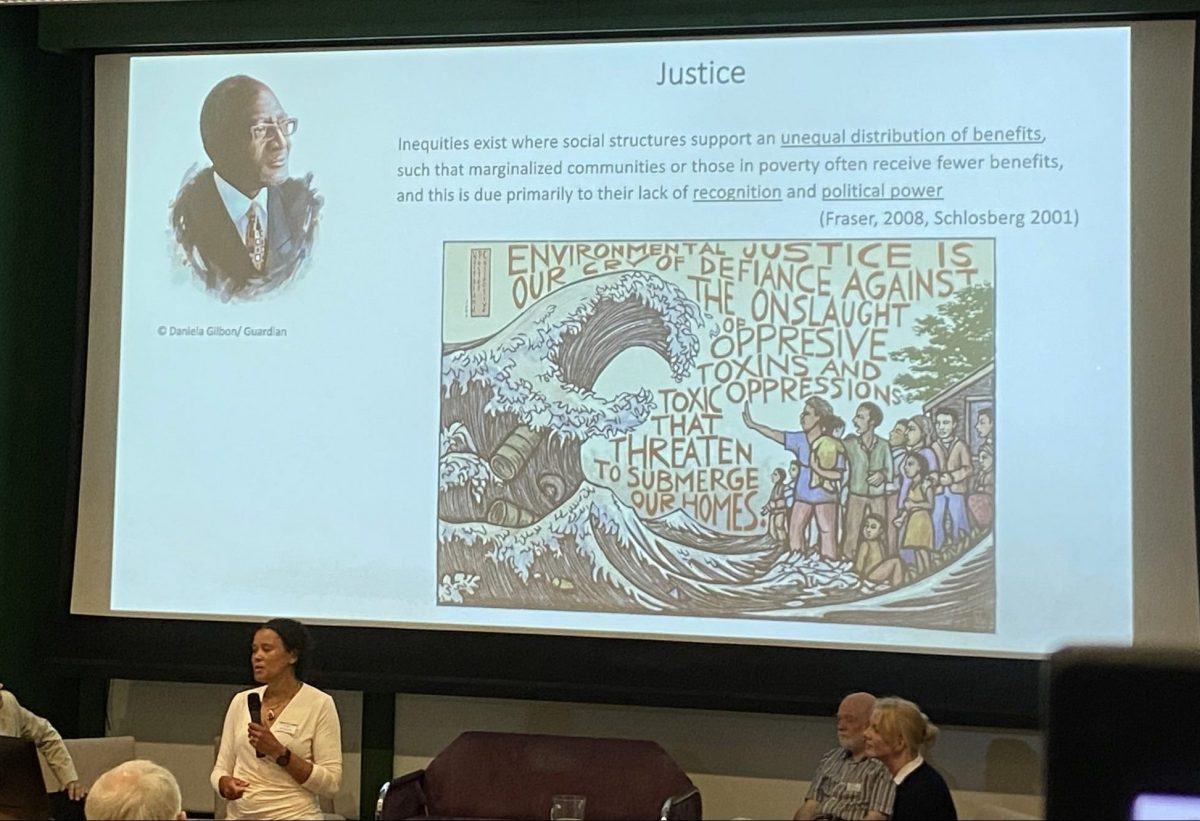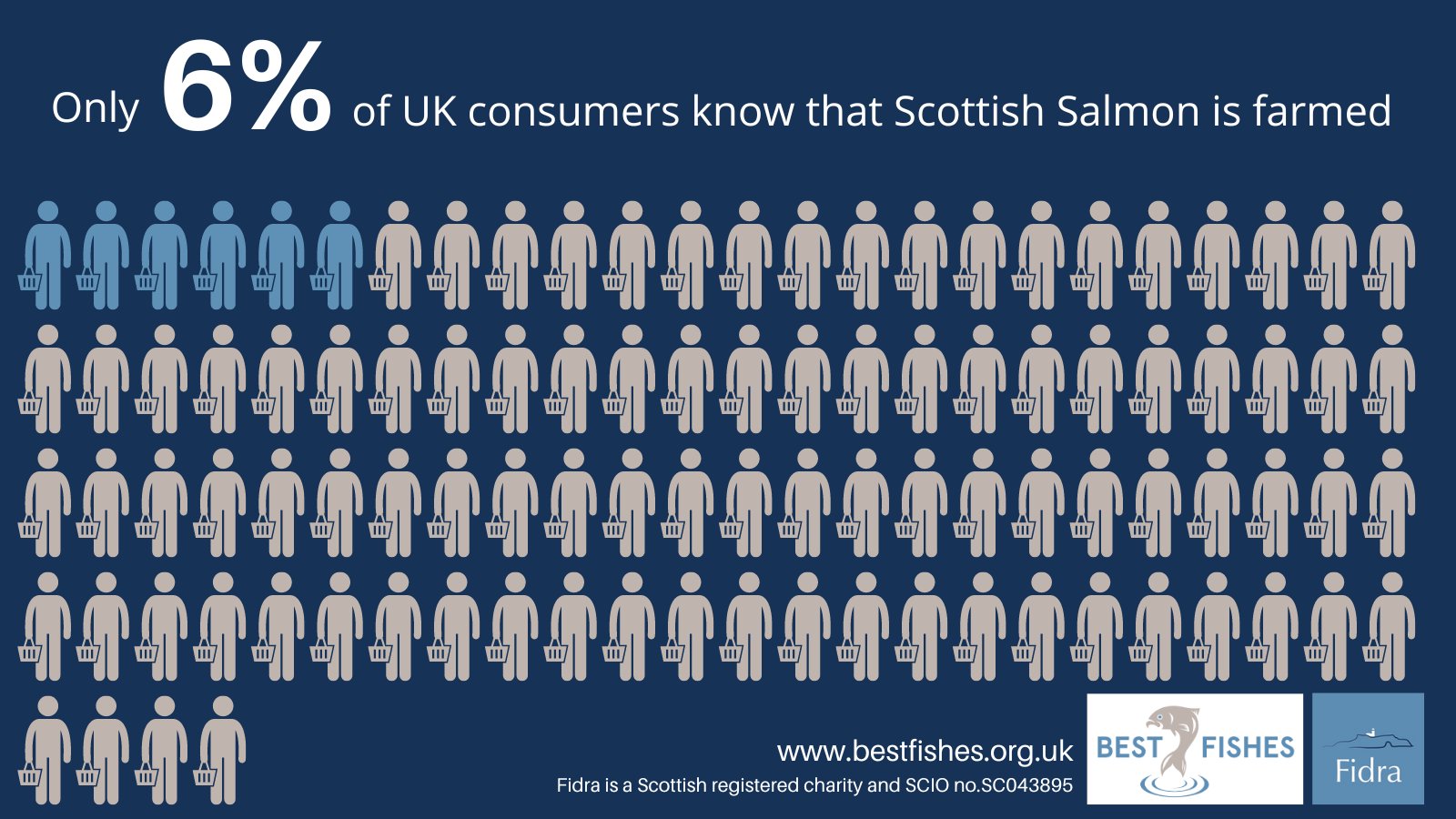Fidra’s Best Fishes project advocates for more transparent practices across the salmon farming sector, which in turn supports more environmentally sustainable practices, but why? Recently Fidra attended the Seafood Matters UK conference hosted at the University of Stirling; the event identified that not nearly enough people were talking about transparency when everyone should be. Here is our take on why:
Environmental Justice
During the first session panellists identified that the drive to increase production can have negative effects on both the environment and also on communities, particularly when the benefits of the commodity are disproportionately shared. A panellist stated that ‘globally half of all salmon farms are owned by fifteen companies’, further to this, in Scotland 96% of the Scottish salmon farms are owned by five key producers1. This lack of equality in seafood benefits is felt around the globe, therefore it is fundamental that the seafood industry is more transparent. Local communities should have the right to access vital information on the industry and be involved in key decisions linked to the farming when it could directly and indirectly affect them. Without transparency, are we implying that power and decision making be in the hands of the few?
Fidra strongly believe not only should information on salmon production be more transparent to local communities, but the information should be in an accessible format so anyone can access and understand this information. Two panellists challenged the idea that increased productivity across the salmon farming sector could have damaging consequences on the environment. However there is undoubtedly a high risk that when large corporations are continually driving for increased productivity across seafood farming, this could have damaging consequences on the environment. There is a need to remember the importance of increased efficiency within a system when considering environmental sustainability also.

The farmed seafood industry needs to increase awareness of their activities to build public trust
There is a lot of misinformation about salmon farming available to the public with news frequently being shared across different media outlets. Instantly accessible information that is often not verified can lead to mistrust and uncertainty amongst the public. Further to this, understanding the produce sector is not something that appears extensively in any of the UK learning criteria, therefore the public are left to find much of this information themselves. The Scottish salmon industry is complex, and many environmental and social issues are present. A recent Fidra survey found that only 6% of Scottish salmon consumers are aware that the salmon is farmed. All Atlantic salmon sold as Scottish is farmed, and this has been the case in the UK since 20022.

Similarly, the Stirling Council ‘Salmon in Schools’ project3 aimed at increasing seafood intake amongst school children found that ‘more than half of school children think salmon is healthy, but they are less aware of its sustainability credentials’. The study has also identified that there was a significant social divide amongst seafood consumption with children from more deprived backgrounds being less likely to consume seafood regularly. Salmon producers, retailers and accreditation schemes all have a moral responsibility to improve education and understanding of the Scottish salmon farming industry. One of our main asks, is the creation of a ‘real time’ dashboard which will provide detailed and clear information on the environmental impacts of individual salmon farms. This can only be achieved by working collaboratively with stakeholders to ensure this information is accessible to everyone.
More than half of the attendees from the seafood matters conference recognised the need for a more transparent sector. Emily De Sousa, a sustainable seafood educator speaking on one of the discussion panels, stated ‘sustainability is the number one driver for this generation when making a choice, if we don’t know, if (the sector) is not transparent, we (the public) won’t buy’. Currently, some Scottish salmon products are labelled with farm name or loch, improving traceability, however this is often limited to premium ranges. At Fidra we believe the Scottish salmon farming industry needs to increase transparency to protect the environment. We are at a critical point in Scotland where we need to put the environment at the forefront of decisions. Our consumer survey has shown 70% of Scottish salmon consumers want to have more accessible information on the salmon they eat. This should not be restricted by an individual’s income, social class or education.
To see what you can do to increase pressure on retailers and other relevant stakeholders and improve your education and understanding, visit www.bestfishes.co.uk.
References
[1] Compassion in world farming. (2021, March 23). New investigation exposes Scottish salmon industry. https://www.ciwf.com/media-center/press-releases-statements/2021/03/new-investigation-exposes-scottish-salmon-industry-1
[2] The Conservation of Salmon (Prohibition of Sale) (Scotland) Regulations 2002, (2002) (testimony of Scottish Government). Available at https://www.legislation.gov.uk/ssi/2002/418/introduction/made
[3] Fish Farming Expert. (2022, May 16). Farmed salmon served up in Stirling school pilot. Fish Farming Expert. https://www.fishfarmingexpert.com/article/farmed-salmon-served-up-in-stirling-school-pilot/

